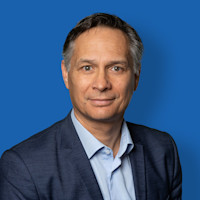In December 2015, the mandate of the Internet Governance Forum (IGF) was extended for a further ten years. The IGF is a formal, UN-organised platform, featuring an annual four-day conference (now extended by a day). The decision to set up the IGF was taken at 2005's World Summit on the Information Society (WSIS) in Tunis. This year's tenth IGF conference was held in the Mexican city of Guadalajara. As well as being the first conference under the new mandate, IGF Guadalajara was the first since the IANA transition.
In December 2015, the mandate of the Internet Governance Forum (IGF) was extended for a further ten years. The IGF is a formal, UN-organised platform, featuring an annual four-day conference (now extended by a day). The decision to set up the IGF was taken at 2005's World Summit on the Information Society (WSIS) in Tunis. This year's tenth IGF conference was held in the Mexican city of Guadalajara. As well as being the first conference under the new mandate, IGF Guadalajara was the first since the IANA transition.
Having been present at the WSIS, SIDN has had representation at the IGF ever since. I myself attended in 2011, when the conference was held in Kenya. Since then, the IGF has visited Baku in Azerbaijan, Bali, Istanbul, Joao Pessao and now Guadalajara. SIDN regarded the WSIS as an important gathering, because the central issue addressed was whether internet governance decisions should be made by multistakeholder processes, or whether governments should jointly have the final say.
At the time, many governments were troubled by the borderless nature of the internet and the absence of a central governing body. There was an appetite – particularly on the part of non-Western governments – to secure more control over the internet. One of the few centralised features of the internet is the IANA function, which covers things such as the root of the domain name system. Various countries therefore thought it would be good to bring the IANA function under UN stewardship. More specifically, it was suggested that authority should be passed to the International Telecommunication Union (ITU), the body through which the nations of the world decide how (international) telephone traffic should be organised. If the proposal had been adopted, ultimate control over .nl and other domains would have been assumed by a UN body: something that we did not want to happen.
The WSIS participants ultimately agreed on a compromise, under which the multistakeholder model was recognised. The question of whether governments should have more control was sidestepped with a joint statement on 'enhanced cooperation'. The statement was sufficiently vague that, to this day, working groups continue to debate its intended meaning.IANA stewardship had historically been provided by the US government, but there was a widespread desire for change. So the discussion process born out of the WSIS remained relevant to SIDN. However, in September of this year, the question of who should control the root was finally settled when the US government transferred stewardship of the IANA function to the multistakeholder community. On the face of it, that transition might appear to have removed the need for our participation in the IGF.
However, over the years, the IGF has changed. Even before the stewardship question was resolved, the scope of the conference had become much broader. Nowadays, all manner of internet-related problems are discussed, often in ten or more parallel sessions. At recent conferences, topics addressed have included 'is my personal data mine, or to be mined', children's right to privacy, and how the adoption of internet standards such as DNSSEC and IPv6 can be accelerated. One of the IGF's distinguishing features is that it doesn't make any decisions. While that often gives rise to criticism, it defines the conference as an opportunity for people from a wide variety of backgrounds (technical community, business community, civil society, researchers and governments) to express their views freely and exchange ideas about how internet problems can be resolved. In my view, it remains a valuable setting for acquiring new insights, learning about new issues and building a better understanding of the backgrounds to them. Our experience is also that the process – getting as many different stakeholders together to discuss each issue – promotes mutual understanding. That in turn provides a sound basis to developing mutually acceptable solutions. It's a little like the Dutch 'polder model' of consensus-based decision-making, but applied to global internet issues.
SIDN believes that it's important to support that process. For several years, therefore, we've been organising the Dutch IGF in partnership with the ECP and the Dutch Ministry of Economic Affairs. As well as encouraging Dutch participation in the global IGF, the NLIGF promotes contact amongst Dutch stakeholders, twenty-five of whom attended this year's gathering. Consequently, although stewardship of the domain name system is unlikely to figure prominently at future conferences, SIDN sees considerable value in remaining involved with the IGF. We therefore intend to be represented at IGF 2017, which takes place a lot closer to home, in Geneva, between 18 and 22 December next year.



